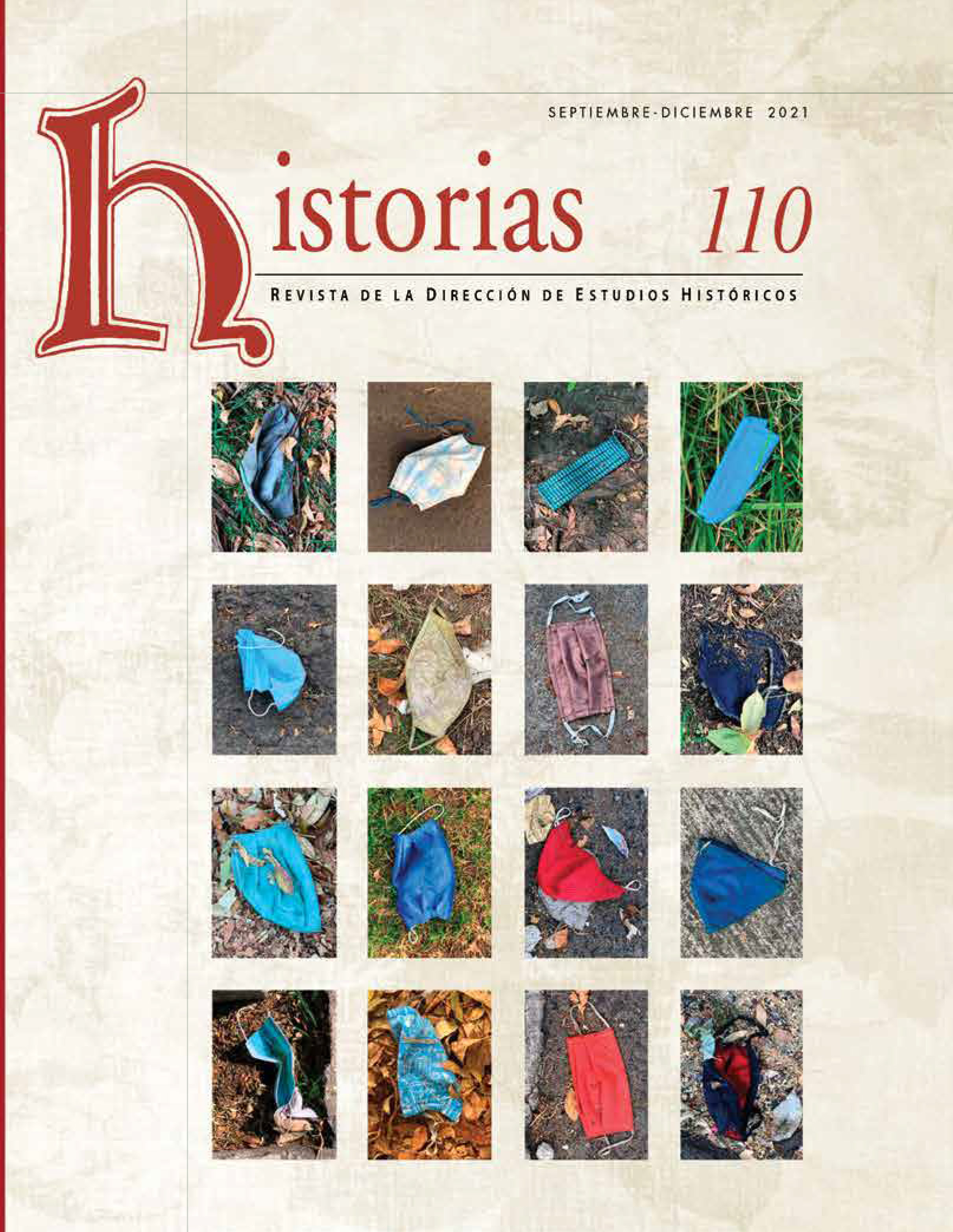El movimiento romántico y el estudio de la historia
Abstract
No se cuenta con resumen.
Downloads
References
The Letters of Edward Gibbon, edición de J. E. Noron (Oxford, 1956), iii, p. 216.
Leopoldo von Ranke, Zur Eigenen Lebensgeschichte (Sämmtliche Werke, Leipzig, 1890, tt. 53-54), p. 47.
Edward Gibbon, The Decline and Fall of he Roman Empire, cap. VI (edición de Bury, 1898), pp. 2, 129.
Letters of David Hume, edición de J. Y. T. Greig (Oxford, 1932), ii, p. 310.
J. G. Herder, “Über Ossian und die Lieder alter Völker”, en Deutsche Art und Kunst, Hamburgo, 1773.
Paul Robert Lieder, “Scott and the Scandinavian Literature”, en Smith College Studies in Modern Languages (Northampton, Mass.), octubre de 1920.
H.R. Trevor-Roper, “The Scottish Enlightenment”, en Studies on Voltaire and the Eighteenth Century, LVIII (Institut et Musée Voltaire, Ginebra, 1967).
James Mitchell, en J. G. Lockhart, Memoirs of Sir Walter Scott (Library of English Classics, 1900), i, pp. 84, 86-94 y 152.
Edward Gibbon, Miscellaneous Works (ed. 1837), pp. 836-842.
J. A. Froude, Thomas Carlyle, A History of the First Forty Years of His Life (nueva edición 1890), ii, pp. 321-22.
Thomas McCrie, reseña a Old Mortality de Walter Scott, en Edinburgh Christian Instructor (enero-marzo de 1817), y luego salió como libro y en The Miscellaneous Writings of Thomas McCrie (1841).
Life of Thomas McCrie DD, by his son, the Revd. Thomas McCrie, Edimburgo, 1840, p. 221.
Walter Scott contestó (anónimamente), en Quarterly Review, abril de 1817.
Thomas McCrie reseña (anónima) a la edición de Charles Kirkpatrick Sharpe de la obra de James Kirkton, Secret History of the Church of Scotland, en Quarterly Review, 1818.
John Paget, The New Examen, 1861: “Viscunt Dundee”.
Claude Charles Fauriel reunió y publicó las baladas griegas (Chants Populaires de la Grèce Moderne, París, 1834). La traducción al alemán de Wilhelm Müller apareció en Leipzig en 1825.
“Das Wichtigste ist das Ergebins plötzlicher Lichtblike und Divinationen”, escribió Niebuhr en carta del 20 de diciembre de 1829 (Lebensnachrichten über B.G. Niebuhr..., Hamburgo, 1838-1839), iii, p. 248 ss.
Jacobus Perizonius, Animadversiones Historiae (Ámsterdam, 1685), cap. VI.
B.G Niebuhr, The History of Rome, traducción al inglés de J. C. Hare y Cannop Thirwall (Cambridge, 1828), i, pp. 212-218, 220 y 404-405.
Charles Beard, The Reformation of the 16th Century (1883, reimpresión Ann Arbor, 1962), p. 346.
Fritz Renker, Niebuhr und die Romantik (Leipzig, 1935).
Leopold von Ranke, Sämmtliche Werk, tt. 53-54, Zur Eigenen Lebensgeschichte (Leipzig, 1900), p. 31.
Leopold von Ranke, Briefwerk (Hamburgo, 1949), pp. 69-70, 166, 174, 204 y 269.
Leopold von Ranke, Neue Briefe (Hamburgo, 1949), pp. 153, 264, 484 y 737.
E.g. Augustin Thierry, cuya Histoire de la Conquête de l’Angleterre par les Normands (1825), como dice Eduard Fueter (Geschichte der neueren Historiographie, Berlín, 1925, p. 445), difícilmente se podría haber escrito sin el Ivanhoe (1820) de Scott.
Leopold von Ranke, Zur Eigenen Lebengeschichte, pp. 61, 64 y 621.
Leopold von Ranke, Sämmtliche Werke, tt. 33-44, Geschichten der rommanischen und germanischen Völker, Prefacio.
D. Suboti?, Yugoslav Popular Ballads (Cambridge, 1932), p. 9.
Sir G.O. Trevelyan, Life and Letters of Lord Macaulay (World’s Classics), i, pp. 55-56, 170, 172, 181, 343 y 438.
Thomas Macaulay, The Works of Lord Macaulay en la Albany Edition (1900), tomo vii.
J. W. Croker en Quarterly Review, LXXXIV (marzo, 1849), p. 551.
Thomas Carlyle, “Sir Walter Scott”, en Critical and Miscellaneous Essays, Chapman and Hall, 1899.
Downloads
Published
How to Cite
Issue
Section
License
Copyright (c) 2021 Instituto Nacional de Antropología e Historia

This work is licensed under a Creative Commons Attribution-NonCommercial 4.0 International License.



